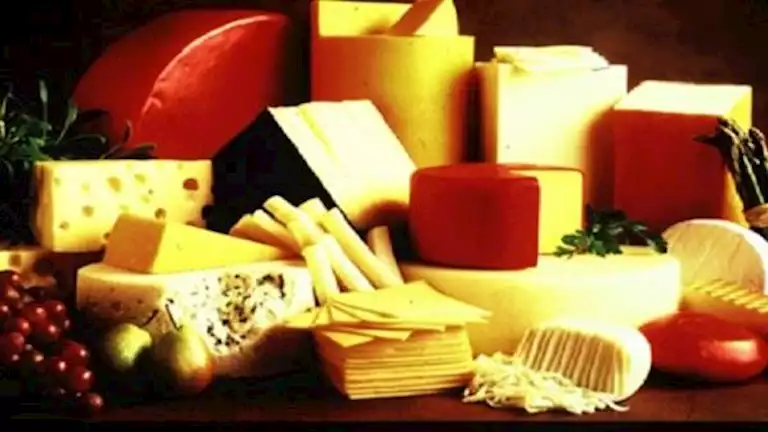01:00 p.m
Tuesday, November 26, 2024
Written by Shaima Morsi:
Cheese is a nutritious food that people all over the world love to eat. joints.
Indian nutritionist Dr. Dimple Jangda revealed that “processed cheese” could have a negative impact on public health, noting that people who eat it are at risk of cardiovascular disease and weight gain, according to Times Now News website.
Reasons why kitchen cheese is dangerous to health:
Long shelf life:
Processed cheese has a long shelf life, as it contains a large percentage of preservatives, emulsifiers and artificial colors.
Full of salt:
One slice of cheese contains 400 grams of sodium, which can lead to high blood pressure and increase the risk of heart disease.
Cheese also contains a high percentage of saturated fat, which leads to high blood cholesterol levels and heart attacks.
Low nutrition:
Processed cheese has no nutritional value or fiber, and eating a diet high in dairy products can lead to severe constipation and other digestive problems.
Allergies and intolerances:
Processed cheese is very high in lactose, a sugar that cannot be digested by people with lactose intolerance, because they do not have the enzymes that break it down.
In these cases, eating lactose can lead to digestive problems, including gas, bloating and diarrhea.
Read also:
Watch out for 3 signs that appear days before a stroke Here’s what you should do
A young man draws his mother’s card in the Hajj lottery … and his answer surprises everyone (video)
A kilo costs 22 thousand pounds…the 5 most expensive types of spices in the world
Amid shock and awe… a man wakes up from death before being buried – and this is what happened
3 surprising benefits of drinking matcha tea – and those who are forbidden from it
2024-11-26 11:00:00
#Pay #attention #type #cheese #health #problems
* How can we balance personal preference for taste and convenience with the desire to make informed and nutritionally sound food choices, especially when it comes to processed foods?
## Open Ended Questions for Discussing the Health Impacts of Processed Cheese:
**Section 1: General Perceptions & Consumption**
* What are your initial thoughts or feelings when you hear about the potential health problems associated with processed cheese?
* How often do you consume processed cheese? What are your favorite types?
* Do you consider processed cheese a regular part of your diet, or more of an occasional treat?
* How do you think public awareness about the potential risks of processed cheese compares to other processed foods?
**Section 2: Specific Health Concerns**
* The article mentions high saturated fat content in processed cheese. What are your thoughts on the role of saturated fat in our diets, and how do you balance enjoying treats like cheese with maintaining a healthy diet?
* The article discusses lactose intolerance and digestive issues related to processed cheese. How do you think food manufacturers can address these concerns, and what alternatives might be available for people with dietary restrictions?
* Processed cheese often contains many additives and preservatives. How do you weigh the convenience of processed foods against potential long-term health consequences?
**Section 3: Societal & Economic Factors**
* Processed cheese is often marketed as an affordable and convenient food option. How do you think this affordability and convenience factor into people’s food choices, and what role do socioeconomic factors play in this equation?
* The article highlights the warnings about processed cheese’s impact on heart health. What kind of public health measures or interventions could be effective in promoting healthier food choices?
* How can we balance personal responsibility for food choices with the need for greater transparency and regulation of processed food ingredients?
**Section 4: Personal Reflections & Call to Action**
* After considering the information presented in the article, will you be changing your consumption habits related to processed cheese? If so, how?
* What kind of information do you think would be helpful to have when making decisions about processed cheese and other potentially unhealthy food choices?
* What role do you see yourself playing in promoting healthier eating habits within your family, community, or broader society?
Remember to encourage open and honest conversation, allowing for diverse perspectives and experiences.


